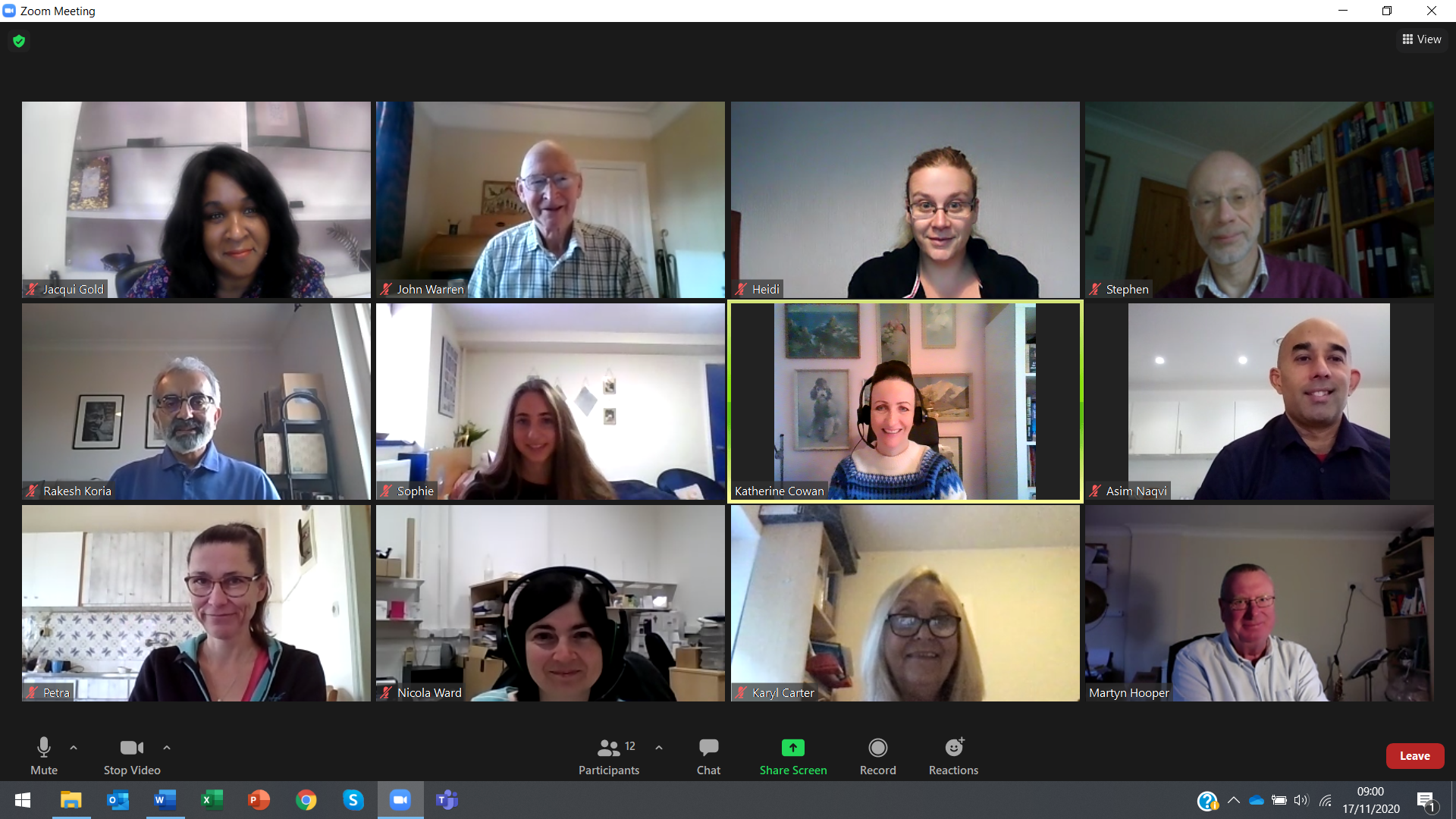Pernicious Anaemia

About this PSP
Pernicious anaemia is an autoimmune disease where patients are unable to absorb vitamin B12 from food. Normal healthy people will produce a substance called intrinsic factor in their stomach. Intrinsic factor facilitates the extraction of B12 from food, but people with pernicious anaemia produce an antibody that destroys their intrinsic factor and consequently will not be able to absorb B12 and consequently not be able to produce healthy red blood cells.
The Pernicious Anaemia PSP worked with patients, carers and clinicians to identify uncertainties about the diagnosis and management of pernicious anaemia and to agree by consensus a prioritised list of those uncertainties, for research.
The image below shows the PSP Steering Group at their first meeting on 17 November 2020.
The Pernicious Anaemia PSP Top 10 was published in December 2021.

See news from this PSP: April 2022
PSP website
Articles and publications
Key documents
Pernicious Anaemia PSP Protocol
Top 10 priorities
- Can a more reliable and accurate test be developed to diagnose Pernicious Anaemia?
- Does an individual’s need for B12 treatment change over time or with life circumstances? What factors might affect this day to day (e.g. stress and exercise) and over a lifespan (e.g. aging, menopause)?
- What are the safest and most effective ways to give B12 to people with Pernicious Anaemia, tablets, sprays or injections, or a combination? Can better ways be developed?
- Why do some health professionals fail to take Pernicious Anaemia seriously? How can this be addressed beyond improving awareness and knowledge of Pernicious Anaemia?
- If the frequency, dose and timing of B12 injections were tailored to the individual and their symptoms, would this improve the health of people with Pernicious Anaemia?
- Why do people with Pernicious Anaemia need B12 injections at different time intervals?
- Why do some people with Pernicious Anaemia still experience symptoms after treatment with B12?
- If people with Pernicious Anaemia do not receive B12 treatment according to their needs, does this cause harm or irreversible damage?
- What should be included in a long-term, comprehensive treatment and care plan for people with Pernicious Anaemia?
- Is Pernicious Anaemia linked to other health conditions, in particular autoimmune conditions or digestive problems? Is there a common cause?
The following questions were also discussed and put in order of priority at the workshop:
- Which follow-up tests should be used routinely for people with Pernicious Anaemia to monitor their health?
- What are the long-term effects of B12 treatment for people with Pernicious Anaemia?
- How does Pernicious Anaemia affect gut function? Do people with Pernicious Anaemia have difficulty absorbing nutrients in addition to B12?
- Should people with Pernicious Anaemia undergo regular testing for other conditions, because of an increased risk of stomach cancer or other autoimmune conditions?
- What are the best ways to treat the nerve damage caused by Pernicious Anaemia?
- Is it safe and effective for people with Pernicious Anaemia to self-inject B12? What are the potential benefits for the individual and the NHS?
Document downloads
For full details of all of the questions identified by this PSP, please see the document below.